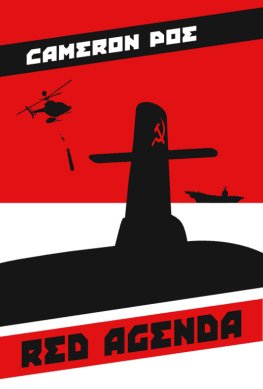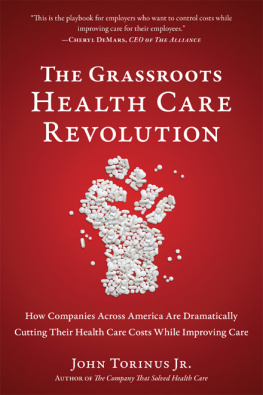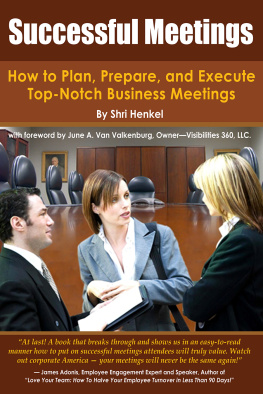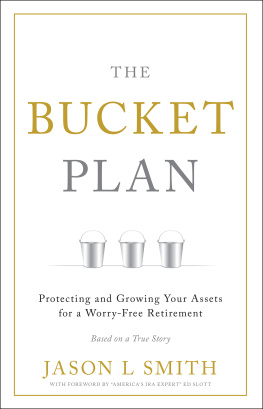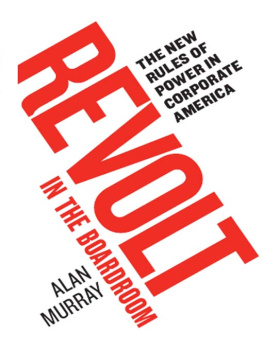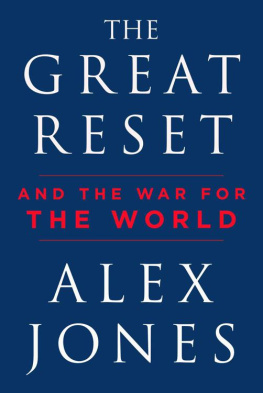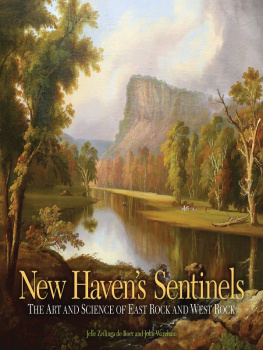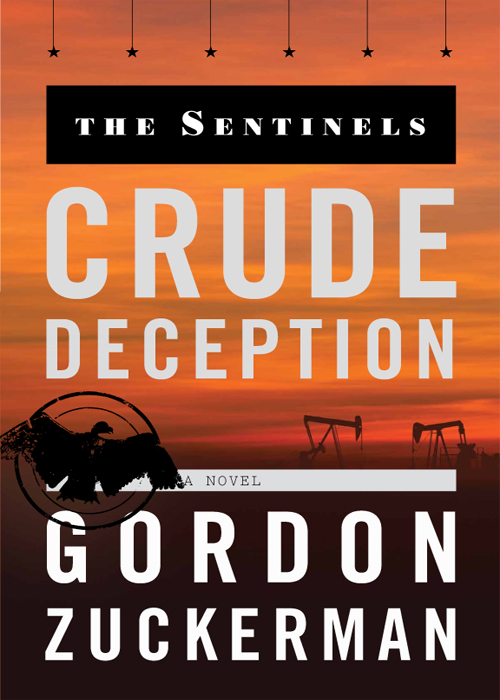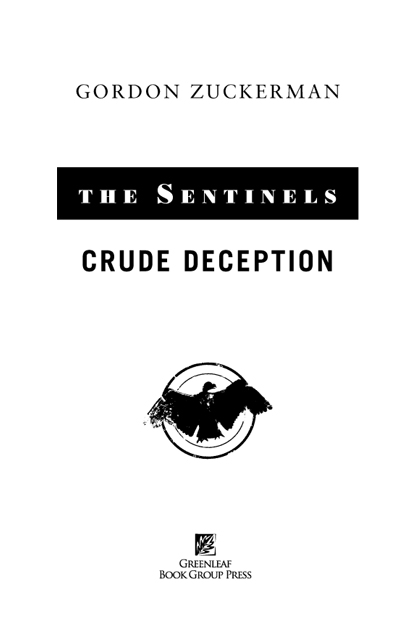This book is a work of fiction. Names, characters, businesses, organizations, places, events, and incidents are either a product of the authors imagination or are used fictitiously. Any resemblance to actual persons, living or dead, events, or locales is entirely coincidental.
All rights reserved.
No part of this book may be reproduced, stored in a retrieval system, or transmitted by any means, electronic, mechanical, photocopying, recording, or otherwise, without written permission from the copyright holder.
For ordering information or special discounts for bulk purchases, please contact Greenleaf Book Group LLC at PO Box 91869, Austin, TX 78709, 512.891.6100.
List of Characters
Ainsworth, Henry (Treasury Secretary)
Armstrong, William (Senator, Indiana)
Arnof, Cecil (French banker)
Arnold, Bob (banker)
Cerreta, Don (alias Mr. Smith, lawyer, along with Mr. Jones)
Chang, Cecelia (a Sentinel)
Chang, Ivan (Tai-Pan, House of Chang)
Clarke, Sam (Samson)
Connors, Steve (ranch foreman for Bill Dean)
Cumberledge, Denise (friend of Claudines)
Cumberledge, Lady Margarite (Denises mother)
Cummins, Natalie (actress)
Dean, William (Bill) (Mikes boss, ranch owner)
Demaureux, Henri (banker, Claudines father)
Demaureux-Roth, Claudine (a Sentinel)
Duits, Victor (Dutch advisor)
Dupree, Benjamin (Arnof protg)
Ferrari, Pete (banker)
Garibaldi, Tony (a Sentinel)
Habib, Prince (House of Saud)
Hardy, Jack (Titus Oil)
Hess, John (Senator, Penn.)
Lee, Ted (Asian banker)
Lucas, Jordan (Senator, Calif.)
Mai Li (tea house owner)
Malone, Roger (chairman, Federal Reserve)
Marcus, Sir David
Matthews, Walter (journalist)
McLain, Jim (Big Oil bank pres.)
Meyer, Ian (a Sentinel)
Muirhead, Sir Desmond (chairman, London Bank of Commerce)
Oh, Lawrence (Indonesian businessman)
Perez, Juan Pablo (oil minister, Venezuela)
Roth, Jacques (a Sentinel)
Roth, Pierre (banker, Jacques father)
Schmidt, Erhart (investor)
Stone, Mike (a Sentinel)
Stone, Morgan (Mikes father)
Tolles, Ray (banker)
Von Heusen, John (VP, Berlin bank)
Wan, K. Kai (Indonesian general)
Wang, C. K. Chairman
Warner, Phil (Times editor)
APRIL 1946
Less than four months since the six Sentinels had formed their new organization and capitalized it with their 25-million-dollar wine investment and 75-million-dollar cash balances that remained after the sale of their last remaining German gold bearer bonds.
Following three difficult years of challenge, personal danger, and tireless efforts to prevent German industrialists from using their two-billion-dollar Fortunes of War to start another Reich, each of the Sentinels was looking forward to resuming a career, returning to a more normal and peaceful life, and pursuing lifes more personal aspects.
Jacques and Claudine Demaureux-Roth were settling into their new lives in New York City following their honeymoon in Sun Valley, Jacques was concentrating on developing Stone City Banks International Banking Department, and Claudine was helping interface American financial and governmental interests with the emerging industrial community of postwar Europe.
In San Francisco, Mike Stone was determined to complete all the study and planning needed to help his new employer, Dean Securities, establish a worldwide market for the trading of petroleum futures contracts. Cecelia Chang was expanding America West Banks efforts to better service the vacuum left in the many different Asian markets at the end of Japans occupation.
With the defeat of the Japanese in the Pacific and the Germans in Europe, seven American and British oil companies were left in control of 92 percent of the worlds oil production. For more than a year, respected economists had been predicting a dramatic postwar industrial revolution. They all agreed the combined effect of the pent-up consumer demand in the United States and the resurgence of reconstructed economies of Asia and Europe would create new economic prosperity. The demand for petroleum was expected to rise at an exponential rate for many years. Although the various prognostications differed in magnitude and duration, they all forecast exponential expansion in the demand for oil.
Rumors of the Oil Clubs efforts to control future oil productions were beginning to circulate. The Sentinels were asking themselves, Was a new concentration of wealth and influence being organized to pursue a new agenda of self-interest that could conflict with the publics longer-term best interests? Did they need to become involved?
Prologue
A GATHERING IN WYOMING
Wearing bulky waders, Jacques Roth felt exposed and defenseless standing in the knee-deep riffles of Wyomings North Platte River. It wasnt fishing that had brought Jacques to the Platte. His assignment was to record the make, model, and N number of each of the chartered planes that would be landing at the remote airstrip next to Wyomings Rocky Mountain Club, a private and very exclusive hunting and fishing club. He needed to prove that the chief executive from each of the United States seven largest oil companies had met here, all at the same time.
Jacquess presence in Wyoming was the result of an offhand comment made by a senior oil executive at a bankers meeting attended by Morgan Stone, chairman of New York Citys prestigious Stone City Bank. Based on the comment, Morgan had become concerned that this oil executiveand the executives of the other major oil companieswere arranging a private meeting, probably out of interest in extending their control over the nations oil supply, which was needed to meet increasing postwar demand. He immediately alerted his son, Mike Stone, who was a longtime friend and associate of Jacques.
It was 1946; both Mike and Jacques had worked for Stone City Bank for more than seven years following their graduation from the University of California at Berkeleys doctoral program. They were also two of the six Sentinels, a group that had been instrumental in preventing the German industrialists from using their war fortunes to fund another Reich. Though that mission was over, the core members of the Sentinels were still very much concerned with the corruption that results from too much power becoming concentrated in too few hands. And thats exactly what Morgan Stone suspected was about to happen in the oil industry.
Morgan had called Mike and Jacques together to discuss his growing worry over the situation. As a result of Japans defeat in the East and Germanys defeat in the West, he said to them, seven American and British oil companies have found themselves in control of a large portion of the worlds oil production. If these seven members of a self-styled Oil Club are planning to extend their control of the worlds future oil production, the concentration of so much power and wealth could eventually lead to their control of the worlds economic and political future.
Mike and Jacques sat silently in the boardroom of Stone City Bank, eager to find out what they could do to help.


